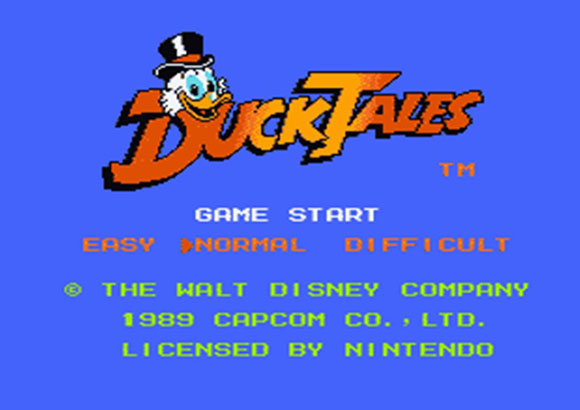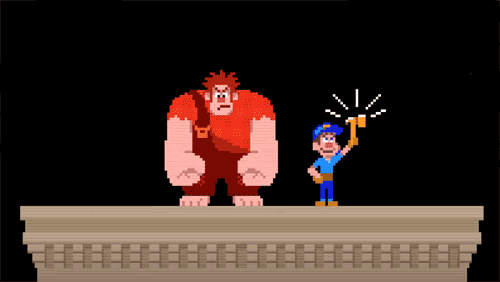

“DuckTales Remastered” Pushes Video Game Nostalgia To New Heights
 The line between animation and video games has long been blurred. There was the Saturday Supercade on CBS in the mid-80s, where Frogger, Q-Bert and Donkey Kong starred in short segments. A handful of years later, Fox ran the Super Mario Bros. Super Show! and NBC had Captain N: The Game Master. All of these shows were relatively short-lived marketing methods of pushing Nintendo further into homes and the minds of children. But lately, the animation and video game industries have united under the banner of nostalgia, appealing to adults whose childhoods were spent chasing down the aproned token keeper in the local arcade.
The line between animation and video games has long been blurred. There was the Saturday Supercade on CBS in the mid-80s, where Frogger, Q-Bert and Donkey Kong starred in short segments. A handful of years later, Fox ran the Super Mario Bros. Super Show! and NBC had Captain N: The Game Master. All of these shows were relatively short-lived marketing methods of pushing Nintendo further into homes and the minds of children. But lately, the animation and video game industries have united under the banner of nostalgia, appealing to adults whose childhoods were spent chasing down the aproned token keeper in the local arcade.
This nostalgic trip is partly due to a major shift in demographics. Generation X and Y, the first to experience video game-filled childhoods, have grown up, and many of them now have young children of their own. It explains the broad appeal of Wreck-It Ralph—a father who spent countless hours feeding quarters to a PacMan arcade game was just as likely to be entertained by the film as his child. In fact, Disney succeeded in creating faux arcade games that felt so real, adult audience members were convinced to the point of feeling nostalgic. Fix It Felix Jr., the game in which Ralph was the villain, felt ripped from your childhood arcade.
You could assume this nostalgia trend would’ve peaked with Wreck-It Ralph, but it shows no signs of slowing. Ratchet & Clank, the series of Playstation games initially released in 2002, is finally receiving the animated film adaptation that its fans have craved. Rainmaker Entertainment and Blockade Entertainment plan to produce the film for a theatrical release in 2015. Fortunately, the fan base has grown right along the game. Says one commenter on The Nerdist : “The twelve year old in me (currently 23) just stood up and yelled, ‘Finally!'”
Then there’s game developer WayForward, set to release a remastered version of DuckTales, Capcom’s hit that originally sold nearly 3 million copies on NES and Game Boy. It was and is exceedingly popular, with gamers still raving about the game’s tight handling. Among 8-bit musicians, who derive their tunes from the sounds of Nintendo, the DuckTales soundtrack is a unanimous favorite. Some even say that the Nintendo game eclipses all other aspects of the DuckTales franchise, including the animated series.
What’s most incredible about this project from WayForward is its unabashed pandering to a nostalgic audience. WayForward’s remastering remains true to the original, with whole levels of the game completely duplicated, save for enhanced background graphics. According to an article on the Verge, Disney even went so far as to provide original art assets and the voice actors from the DuckTales animated series, including 90-year-old Alan Young as Scrooge. “We’re really trying to make it play as identical to the original as possible,” says WayForward’s Austin Ivansmith. “We thought, well if the original developers could make this again today, what would they do?”
There is no doubt that DuckTales was a major keystone of early video game history—I even revisit my own copy once every few years. Young parents who grew up playing DuckTales on NES will leap at the chance to reintroduce the game to their kids on the contemporary consoles of today. These sorts of modern reinterpretations can certainly yield some fresh, artistic perspective. But the relationship between the animation and video game industries is becoming more blatantly based on the desire for financial sure-bets. And if we know anything about Hollywood, where movies based on boardgames are greenlit, audiences will continue to be encouraged to wallow in childhood nostalgia.


